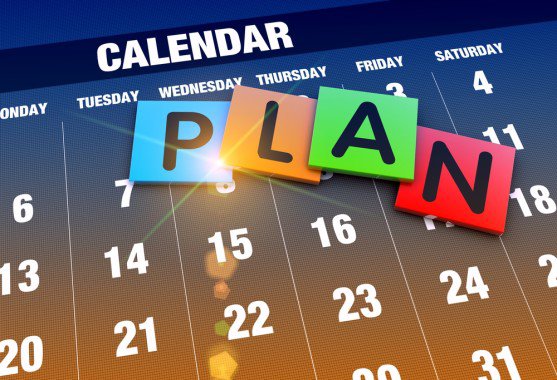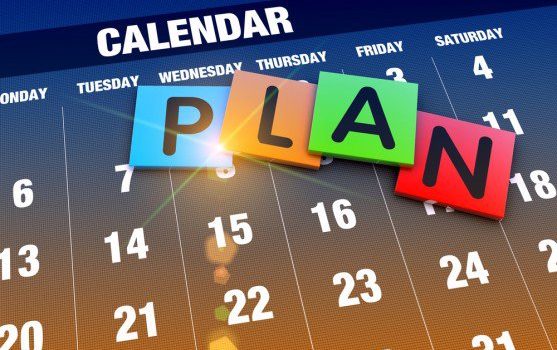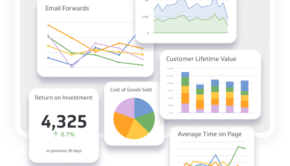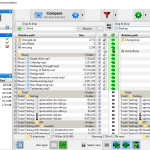Fundamental Planning: Tips for Planning an Online Event
Memorable events don’t just happen. Organizing and holding an event takes planning. Whether it’s a conference, seminar or a customer appreciation day, your event’s success is in the details. As a matter of fact, any missteps can have critical repercussions for your mission down the line, so it’s important to develop a strategic checklist while you are in the planning phase.
If you’re an event planner, you likely have a unique gift of being able to see both the big picture as well as the steps and resources needed to make the vision possible. In other words, you’re both a people and task person which is truly a rare find. However, it’s also important to point out no matter how skilled someone might be, there are always limits to how much the human brain can remember, communicate, and facilitate.
This is why systems and technology are an event organizer’s best friend. You have spent time getting to know a project management platform before truly committing. In order to help streamline the exploration process, I’ve outlined and summarized some of the best ways to successfully plan an event online.

Image courtesy of Small Biz Trends
Digital Advice
The purpose of your event. It’s the simplest, yet most complex question to ask yourself before planning any event. Simply ask yourself “What’s the meaning behind this event?”
You’d be surprised how many people think an event is a wonderful idea, but when pressed on what the purpose is, or its overall goal, they’re unable to articulate the overall objective. To clarify, you want to make sure there’s a clear mission and business reason to hold an event, a celebration, or a fundraising event. If you’re launching a new product and lacking a defined objective, your event can be a costly effort without the power to attract consumers or further your mission.
Spreading the word. These days’ people are overwhelmed with social media, emails, and other digital communication devices alike, but the fact remains that most of us actually prefer receiving updates electronically. So instead of solely relying on temporary signs to help promote your event, you can also connect with individuals by use of social media.
Instagram, for example, is a great way to inform people about an upcoming event. It allows you to use shiny visual aids, and use different size fonts, videos, and hashtags, which are all successful ways to involve your followers in order for the message to feel personal. This will also encourage followers to spread the word, doing some of the work for you. In order for this technique to have success, however, you must first make sure you have a reliable email database that you can use for invitations.
Keep track of the results. It may sound odd tracking the results of an event, but how else can you determine if an event was any good if you can’t analyze any data? To put it another way, there’s no point of sharing content across social networks if you don’t know what type of engagement you’re getting back.
By tracking key social media metrics, including likes, comments, retweets, and shares. This gives you the ability to see what’s working with your audience, what’s not, and how you can tweak your strategy to improve your results in the future.
You can also gain valuable insights that include:
- Knowing the best time to post
- The right frequency to post
- The type of content that works best (photos, links, videos, etc.)
Be prepared for tough questions. In any event, you may receive questions from your attendees and even the media if they show up at your event. It’s best to try to anticipate what some of these questions might be and prepare answers in advance so you’re not caught off guard. Don’t just think of the warm and fuzzy questions people might ask, consider the tough questions. Questions like, “Who sponsored this?”, and “Is there a medic/emergency response team on site?” are just a few questions guest might ask.
Other questions might include subjects such as budgeting, and some ticket buyers may even have questions about refunds. On the other hand, other individuals will almost certainly question why certain people were invited while others weren’t, and the history of your company. Additionally, if the media does attend your event, always consider the story you would like to see as a result of your event and answer questions accordingly.
Staffing for the event. Any event needs to be properly staffed so it’s imperative that you have your staff on board for the occasion. To ease your stress levels, make a plan that everyone is comfortable with and accommodates your team member’s personal lives (especially if your event will be held on a weekend). Whether you need someone to help promote your event, make awesome shirt designs with their sewing machine, or hiring security to stand at the door and collect tickets, staffing is one of the important things to establish first.
Follow these steps, and you can craft a seamless event experience. That means more satisfied attendees and less stress for your staff on the big day!
Thanks for the read! Did I miss anything important? What are some other ways you can promote and an event online? Feel free to leave comments below.
About the author:

Cody Hill loves going out and exploring the world. When he’s not online, he’s out cheering on the Cubs hoping for another national championship. Cody also enjoys reading up on event planning and event budgeting in his spare time.















